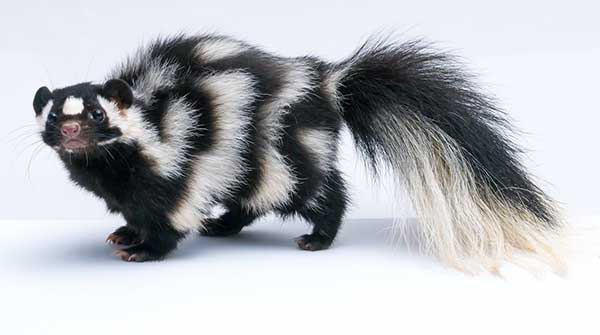A sampling of some of the odd origins of some animal names that we take for granted
 I always marvel at and sometimes struggle to decide where an animal got its name.
I always marvel at and sometimes struggle to decide where an animal got its name.
Think of mammals for a minute – what is a skunk? A rabbit? A moose? Generally, with birds, many of the names refer back to a song or a physical feature – e.g. black-capped chickadee or yellow warbler – but why are mammals and insects and reptiles so confusingly named?
Well, I don’t have an answer to that, but I can share some interesting origins I found in my research for some of our critters.
Let’s begin with an odd one. To understand this one, let’s look at an historical reference. An old tale says, “According to Greek mythology, the god Zeus fell in love with and impregnated Callisto, a young attendant of Artemis (the goddess of hunting). As punishment, Callisto was transformed into a bear. Zeus eventually summoned Callisto into the heavens to become the constellation Arktos, later known as Ursa Major (the Big Bear).
 Photo by Bryan Padron |
| More from Nature |
| Is there an upside to ARk storms?
|
| Give a hoot and support the Great Canadian Birdathon
|
| Seasons come and go, but where did they get their names?
|
This is interesting as we still use Ursus as the genus for our bears. A neat twist is that the Grizzly is correctly called Ursus Arctos. What’s interesting is that Ursus means bear in Latin and Arktos means bear in Greek – so the Grizzly is really the ‘bear bear’!
Perhaps the next ones are more logical. Mink seems to be derived from the Swedish “menk.” A mole is a burrowing animal, hence its origins are in the Old English word “mouldwarp,” meaning earth-thrower. Foxes are pretty cute, what with their bushy tails and all. The Old English for fox is “fukhs” – well, that’s pretty close, at least phonetically. The word for caribou seems to have derived from a Mi’kmaq word for “the one that paws the ground,” referring to its habit of sweeping snow away to expose plants and lichens below the snowy landscape in the winter. The Cree and Ojibway called it Atok and Adik respectively.
Raccoons can be both endearing and annoying. Its name seems to have its roots in the Algonquian word “aroughcoune” – “he who scratches with his hands.” I love how the French have adapted this to “raton laveur” or “little washing rat,” while the Latin roots lead us to a “washing pre-dog” due to their dog-like faces and affinity for rinsing foods. What else could a porcupine be but a porc (pig) + d’espine (thorn) – a thorny, spiky pig from the Middle French and Latin?
The moose is a majestic animal, and its name is derived from the Algonquian word “mus” or “mooz,” meaning “twig eater.” Other derivations include “moosu” – “he strips off bark.” Skunk is a corruption of an Abenaki word “segonku,” meaning “one who squirts.” I like this one – the Eastern Spotted Skunk carries a Latin name that means “stinking spotted weasel.” LOL! The squirrel’s name comes from the Greek “skiouros” or “shadow tail,” which makes a lot of sense! Finally, the word spider is derived from the Middle English “spithre,” which means “spin.”
Oddly, rabbits weren’t always called rabbits – in fact, they were known as “coneys” until the 18th century. The root (i.e. cuniculus) of this name is from Iberia, the only place the European rabbits were known to live until Roman times. The Iberian Peninsula was called the “i-shepan-im” (“land of rabbits” or, more correctly, the “land of the hyrax,” as that is the animal known to the explorers from the Middle East, not the rabbit). Known to some cultures as “peelers,” this name reflects their affinity to strip the bark from the roots of plants. Little was known of their biology and some, such as Pliny, realized that different species existed but knew little else. For example, he thought the Snowshoe Hare lived by eating snow in the winter! The North American Jackrabbit was initially called the Jackass Rabbit due to its huge ears, but the name was shortened over time.
So there is a sampling of some of the odd origins of some animal names that we might take for granted. Now I think I might slip out and look for an “amisk” (beaver).
Geoff Carpentier is a published author, expedition guide and environmental consultant. Visit Geoff on LinkedIn, Instagram and Facebook.
For interview requests, click here.
The opinions expressed by our columnists and contributors are theirs alone and do not inherently or expressly reflect the views of our publication.
© Troy Media
Troy Media is an editorial content provider to media outlets and its own hosted community news outlets across Canada.

